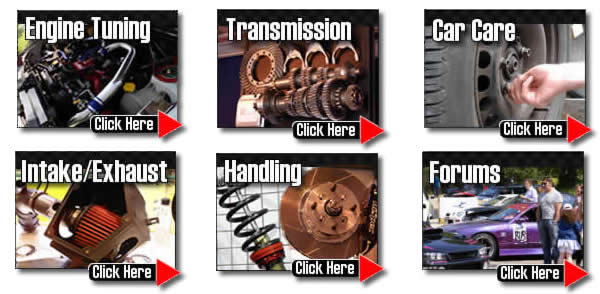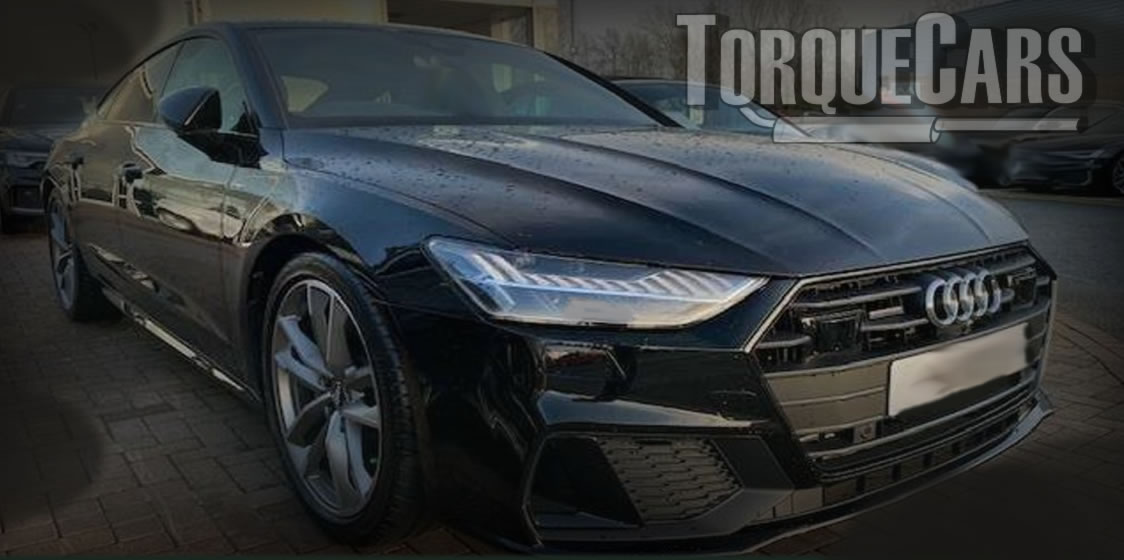Tuning the Audi RS7
"Thanks for reading this Audi RS7 tuning tips."
The RS7 is a great tuning project to play with. The key to RS7 tuning is doing it right - a lot of money can be wasted if you do it wrong.
This actually feels fun to drive, you could easily forget you are in a practical(ish) family coupe, and think you are in something much sportier.
Audi have done a great tune tuning and fettling the A7 chassic and have created what I feel is the Ultimate Audi.
We detail the best approach to RS7 tuning and point out the optimum modifications. Audi RS7s make awesome project cars and with the optimum performance upgrades you can positively enhance your driving fun.

Handling/Suspension upgrades
Many RS7 owners uprate the handling of their cars with tuning suspension modifications as a priority, this will certainly increase your enjoyment of the car.
We feel that the RS7 suspension is a little harsh, but this could be due to the massive wheels fitted.
Good suspension tweaks that radically improve handling for the RS7 include a couple of degrees negative camber and 1-1.5 degrees of toe in or out on the front wheels. Toe in for stability, or Toe out to improve cornering. It would also pay to improve the brakes, by adding larger discs and or higher friction pads. but this may compromise straight line stability.
We would go to a maximum drop of 23mm - 39 mm. on most models. You risk rubbing on the arches if you go lower than this.
Top end power should be your overall aim on the RS7 with a nice fat peak torque band.
Sadly with smaller engine sizes you are wasting your time spending money on modifications, so if this applies to you get yourself an engine swap then apply the following mods.
Engine Tuning.
RS 7 TFSI quattro a 4.0 TFSI twin scroll twin turbo V8 engine
- 2013–2017 552 hp @5,700–6,700 rpm 516 lbft at 1,750–5,500 rpm
- 2018- 605hp @6000rpm 553lbft "1,750–5,500 rpm
The following modifications are usually fitted by our members, decide how far you want to push your car before you get started.

Getting the best performance upgrades for your planned usage of the car is essential. Stage 3 motor sport parts just don't work well on the road making the car difficult to drive.
Please watch our introduction Video tutorial to car tuning. Be sure to subscribe and support our new channel.
How to tune your car
- Improve the handling
Focus on Suspension improvements, such as coilovers and make sure the bushings are in good order and that the alignment is correct. Then focus on improving the brakes, with a big disk brake conversion kit and fast road brake pads.
- Remove restrictions
Focus on the intake and exhaust with filters being the common point of restriction in a tuned car. Intercoolers may also become restrictive on turbo engines so this may also need to be uprated.
- Burn more fuel & air
Increase the fuelling so it matches the air coming into the engine. The ratio is important so you need to improve the fuel pump and injectors, so the head mods, big valve conversions, fast road camshafts and forced induction upgrades extra supply of air is adequately met.
- Test and replace any weak parts
Weak areas are commonly the clutch, the turbocharger and pistons and crankshaft in a highly tuned engine. Makes sure these components will cope with your power aspirations.
- The Tune or Remap
A cars ECU controls the fuel, timing, spark and even the turbo in some cases, so to fully extract your gains you should remap the car last and this will fully release the power. Some cars are easy to map, and others require piggyback ECU's or aftermarket ECU's but this is the most vital step of your tuning project.
Modifying to Stage 1:
Suspension upgrade (drop 23mm - 39 mm.), Alloy wheels, Panel air filter, Sports exhaust, Lighter flywheel, Remap.
Modifying to Stage 2:
fuel pump upgrades, Ported and polished head, high flow fuel injector, Fast road cam, Power/Sport clutch.
Modifying to Stage 3:
Engine balancing, Adding or upgrading forced induction (turbo/supercharger), Internal engine upgrades (pistons/head/valves), Competition cam, Sports gearbox.
Your aim when modding the engine should be a wide torque band. You don't want all the power to be at the top end of the rev range unless you are creating a motor sport car.
The point of our articles is to give a brief overview of modding mods and point you in the right direction, our forum is where you can ask for more detailed advice and tips on your customized car project, the best sport parts and all aspects of modding cars.A fast road camshaft will be one of the best NASP power mods you can do with a single part fitted to your engine.
It maximises the intake and exhaust durations and pushes up the power if done right. Ideally you'd add other mods and finish up with a remap.
We'd also caution you not to go with a motor sports profile cam as this affects the engines idling and general town driving characteristics.
Don't forget to ramp up the fuelling when you are increasing the power - it makes the car more thirsty.
If you find you have flat spots and power surges after your tuning modifications you should check the fuelling and try a higher octane fuel as well. Larger injectors will enable you to supply sufficient fuel to the engine.
If you are increasing your fuelling with bigger injectors you will also need to get a bigger fuel pump to supply it.
Intake and Exhaust Tuning.
The next area for modification is the intake and exhaust. Please note that WE DO NOT RECOMMEND INDUCTION KITS, unless you have tuned your car a lot and are finding that the standard air intake has become the bottleneck.
Derestricting the air flow into the engine is the primary part of car tuners so get a better flowing air filter if you find that the car is running lean only if you find the car is running lean. Induction kits can sound sporty but due to the warm air in the engine bay they will not really increase power and more often than not rob you of power on most cars.
Sports exhausts can usually air flow from the engine but do not go too big or you may end up will reduce the flow rate. Stick to 1.5 to 2.5 inches as a rule of thumb.
Getting the cylinder head ported and polished will further help more air into each cylinder. This is definitely a job for a professional with a flow bench.
Your clutch can lose you loads of power as you increase the power if it starts to fail and the standard clutches are only ever good for power gains of up to 30%.
Fit an uprated clutch to avoid power leak through the transmission. The best mods that we recommend for your RS7 are fast road camshaft, remap, induction and exhaust, suspension.
NASP engines do not achieve big power gains if you remap them, unless you have done extensive modifications. With turbocharged engines this is another story.
A remapped turbo will give big power gains and take full advantage of the strength of the block. The most phenomenal power gains for NASP engines usually involve the addition of forced induction. Superchargers are often easier to add than a turbo. It is harder to map a turbo as the boost comes on exponentially with revs.
Superchargers however will give a boost which is proportional to engine speed so is easier to map. Adding forced induction will often require a lower compression ratio or water injection.
Alloy wheel upgrades.
Alloy wheels will help the brakes cool down and are usually lighter than steel ones. We can't go into too much detail here about tires but they are how the car puts the power down on the road so are a critical choice.
Directional tread pattern tires work well on RS7s, and make a big difference over budget tires. Large RS7 alloy wheels can decrease performance. If you get big alloy wheels you will be changing your final drive ratio.
Because of this try to keep the overall rolling diameter of the wheel the standard factory sizes. In all cases avoid going above 19 inches and I'd personally stick with 18's for a daily driver as I prefer the handling and ride quality.
For more information on Tuning your car please join us in our friendly forum where you can discuss RS7 options in more detail with our RS7 owners. It would also be worth reading our unbiased Audi tuning articles to get a full grasp of the benefits and drawbacks of each modification.
Please help us improve these tips by sending us your feedback in the comments box below.
We love to hear what our visitors have got up to and which mods work best for them on each model of car. Comments are used to improve the accuracy of these articles which are continually updated.
If you liked this page please share it with your friends, drop a link to it in your favourite forum or use the bookmarking options to save it to your social media profile.
Check out TorqueCars new YouTube channel, and see their awesome new content...
Feedback
Please use our forums if you wish to ask a tuning question, and please note we do not sell parts or services, we are just an online magazine.
Help us improve, leave a suggestion or tip
